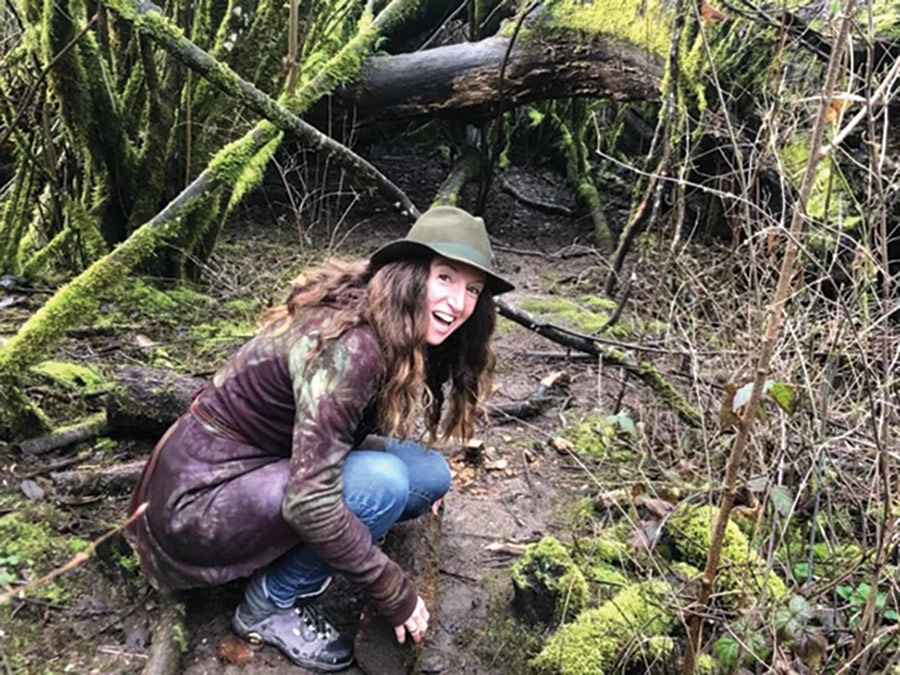Wild Life

You may have heard (especially from paleo diet advocates) that your body and brain are remarkably similar to those of your hunter-gatherer forebearers. It’s just that the lifestyle you’ve grown up with doesn’t align with your biology.
Despite your 21st-century digital trappings, you are actually a bipedal social hominid who thrives outdoors collecting and preparing food in a tight-knit group. You evolved to range over the landscape, build simple tools and shelters, recount your tales, and dance your dreams around a collective fire. If it weren’t for your technological dependence and lack of training in a clan, you would excel at finding everything you need in nature.
That is who you still are, yet most modern people lack the knowledge, skills, or physical prowess to live in the wild. The past generations of technological development have decreased our strength, bone density, and the acuity of our senses. We’re sick and stressed out at unprecedented levels. Some scholars have posited that we industrialized people have become genetically domesticated, like our pets and farm animals. According to this idea, continuous selection for less aggressive mates over tens of thousands of years led to humans exhibiting similar traits to domestic mammals (increased cooperativeness, smaller teeth and facial bones, and fewer neural crest stem cells), known as the domestication syndrome.
A few years ago, I decided to rectify this evolutionary mismatch by acquiring some wild skills. I learned from modern people who live mostly outside, with minimal modern tech or conveniences. These folks are part of the growing movement of human “rewilding,” which is not about romanticizing the ancient past, but preparing for the distant future when our technological life support system may collapse. Escaping civilization for a while offers relief from stress in an environment of sunlight, fresh air, diverse microbes, and calming sights and sounds that decrease cortisol levels and enhance the immune system. There are benefits to our higher faculties too: increased creativity, better concentration, fewer negative thoughts, and clarified attention. I felt energized, excited, and free from typical neuroses while doing this research, only to feel overwhelmed with stress upon returning to my urban working life.
I started rewilding myself, reducing my indoor and screen time, foraging wild food, and making goods from natural materials.
As a result, I’ve reaped the benefits of increased fitness, physical competence, practicing survival skills, and deeply connecting to nature. This gave me a better understanding of how human societies functioned before the rise of civilization roughly 10,000 years ago, and how the hunter-gatherer lifestyle carried humanity through 96% of our time as a species.
There’s a bigger lesson, though. By gaining these skills, I don’t fear the future. Self-sufficiency breeds courage and resilience, qualities that wild humans develop in abundance. Understanding that our birthright is a fearless, happy, low-stress, and socially supported way of life now provides me a reassuring baseline.